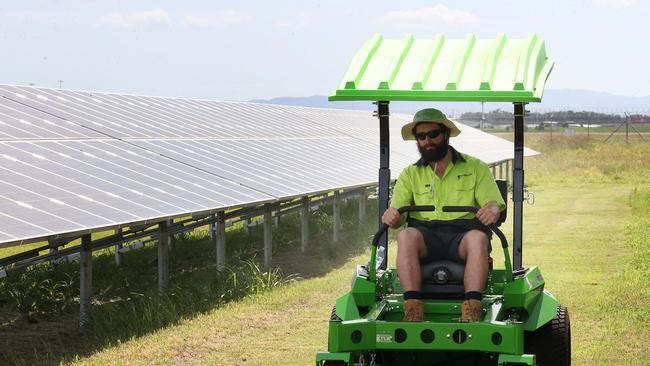Rising energy bills may derail green transition, cautions Origin Energy
Origin Energy is concerned several more years of rising household power bills could spark a backlash on green electricity, and warns coal exits may need to be delayed.
Rising household energy bills this decade could spark a backlash against the move to renewables, Origin Energy said, while warning the exit of coal power plants may need to be delayed to safeguard the power grid.
Treasury has warned of a 56 per cent jump in power prices in the next two years, while Labor will intervene in Australia’s domestic gas market before Christmas to calm soaring prices.
The industry needs to invest $76bn by 2030 to achieve the energy transition under Labor’s Powering Australia policy, but Origin argues companies face a challenge meeting that goal while also keeping a lid on high energy costs.
“Delivering the energy transition, given the scale of investment required, will undoubtedly create upwards pressure on energy bills,” Origin chief executive Frank Calabria told a CEDA forum on Tuesday.
“I fear rising energy prices could erode community support for the transition – a task that can only be delivered with co-ordination and commitment across governments, the private sector, market operators, regulators and communities.”
Origin, juggling a $18.4bn takeover bid from Brookfield and EIG, said the industry must be upfront with consumers over the cost of the move to green energy.
“We must be honest about the likely impact on bills over the short- to-medium-term to reduce bill shock,” Mr Calabria said.
“We must consider what levers are available to ease cost inputs right across energy bills, while implementing additional support for those in our community least able to pay.”
Gas consumers also face a big financial hit, with tariffs expected to increase by 20 per cent this year and in 2023-24 due to an ongoing supply crunch on the nation’s east coast and near-record LNG prices filtering through to the local market following Russia’s invasion of Ukraine.
Origin raised concerns over a planned intervention in gas markets by the Albanese government, warning it was worried about the “unintended consequences” of a price cap being introduced.

“We want to be a good international player. We want to make sure supply is available. And I think we don‘t want to have unintended consequences,” Mr Calabria told reporters on Tuesday.
It also weighed in on the vexed issue of coal plant retirements noting coal closure time frames had accelerated this year with some 17GW of supply expected to exit the market by 2035.
Origin itself brought forward the closure of the nation’s largest coal power station, NSW’s Eraring, by up to seven years to August 2025 to meet green goals and focus on clean energy generation. A decision on whether to keep the plant open would be made several years in advance, according to the Origin chief, suggesting a mid to late 2023 deadline.
Mr Calabria said the scale of coal exits out through 2035 may require a reversal of some retirements should not enough replacement supplies be in place.
Consideration “must be given to the cumulative impact of these closures on the market alongside the prospect of delays to new infrastructure coming online,” Mr Calabria said.
“There may be a requirement to delay the exit of some of these coal units, and only for as long as needed, to maintain the security and reliability of the national electricity market.
“These policies will need to be flexible, with consideration given to commercial factors like compensation for costs incurred in running uneconomic plants, as well as the need to retain coal plant workers, secure coal supply contracts, and many other related matters,” Mr Calabria said.
Origin said it was worried about the nation failing to achieve its renewable supply targets against a backdrop of having to triple capacity by 2030.
“We must execute projects with greater urgency,” Mr Calabria told the forum. “I’d argue that we’re still not moving with enough urgency to build the replacement infrastructure needed within the next seven years to manage coal closures and achieve the nation’s objective of 82 per cent renewables by 2030.
“As each day passes, not only does the urgency and complexity of the challenge increase, so too does the cost.
“We need to deliver utility scale renewables faster than we’ve ever done before. The national electricity market currently has 3 gigawatts of renewable capacity slated to come online. This is good, but we’ll need much more – an expected 28GW by 2030.”
Brookfield has pledged an extra $20bn of spending on renewables should it prevail with its joint bid for Origin. Mr Calabria said the company would be able to fund its way through the transition if it remained as a public company, but said the Canadian’s cash injection may speed up the process.
“What I feel Brookfield has been clear about is that feel they have an opportunity to accelerate it even faster. So I don’t feel constrained but they’ve presented an opportunity which is obviously material.”




To join the conversation, please log in. Don't have an account? Register
Join the conversation, you are commenting as Logout